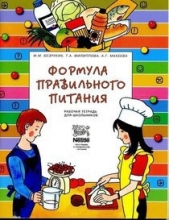Английский язык. Higher education

Английский язык. Higher education читать книгу онлайн
Настоящее учебно-методическое пособие предназначено для студентов социально-экономического факультета ИПП как дневной, так и заочной формы обучения, изучающих социокультурный и/или лингвострановедческий курс английского языка. Рассчитано на 72 часа аудиторной работы для студентов гуманитарных и экономических специальностей на дневной форме обучения, 30 часов и 10 часов соответственно для студентов гуманитарных и экономических специальностей на заочной форме обучения, что отображено в разделе 1 пособия.
Характер данного пособия определяется целью, которая ставится при обучении иностранным языкам в неязыковых вузах - углубление иноязычных знаний и формирование коммуникативных навыков и умений студента. Данное пособие призвано обеспечить студентов тематически упорядоченным языковым материалом, который может служить основой для развития и закрепления навыков, необходимых для глубокого понимания содержания иноязычного текста, анализа прочитанного, подготовки к монологической и диалогической речи, а также для письменных сообщений.
Внимание! Книга может содержать контент только для совершеннолетних. Для несовершеннолетних чтение данного контента СТРОГО ЗАПРЕЩЕНО! Если в книге присутствует наличие пропаганды ЛГБТ и другого, запрещенного контента - просьба написать на почту [email protected] для удаления материала
Marketing deals with market research and commercial activity in general. It involves analyzing business situations, evaluating market opportunities, developing market strategies and controlling their implementation. It is important for a specialist in marketing to be flexible and prepared to make adjustments where necessary, as it is unlikely that any marketing plan will succeed exactly as planned.
I haven't decided yet what to study. But I still have time to think and to choose.
PART II
DIRECTIONS: Read the .
SO YOU’VE LEFT SCHOOL AND NEED A JOB
From DAILY MIRROR
HERE’S HOW TO GO ABOUT IT.
More than 650,000 teenagers have just left school and gone out into the adult world.
It’s a tough time, tougher than ever. With 243,422 young people already unemployed – and more expected by next spring – it is not going to be easy for many school-leavers to find a job.
All of them, whether they get work or not, must cope with a lot of new responsibilities.
Today the Daily Mirror begins a full examination of school-leavers’ problems – and also explains:
WHAT your rights are as a young adult.
WHAT you should do if you can’t find a job.
WHO will help you if you can’t get on with your parents.
HOW you can find a place of your own.
HANDLING INTERVIEWS.
Above all, don’t be late. Try to be at least five minutes early.
Wear something sensible and comfortable – and dress the part.
It is all right to dress up like a clown if you are applying for a job in the circus, but not for a job in an office.
A suit and a tie may make a good impression, but not necessarily the right one for a labouring job.
Relax and think of the interview as a conversation. The employer has to find out enough to decide whether to offer you the job.
You have to find out enough to accept if he offers.
SHOULD YOU LEAVE HOME?
Don’t leave home to find work unless you are desperate. And only do so if you have either friends or relatives to stay with. Don’t be afraid to ask questions if you don’t understand something or there is something you want to know.
It shows you are alert and interested.
Find out something about the company beforehand. If you know the name of the interviewer – and you should – use it.
Do not smoke unless you absolutely cannot do without and then ask before you light up.
If you feel nervous (most people do) try not to let it show.
With too many people chasing too few jobs employers can afford to pick and choose.
Don’t feel too disappointed if you don’t get the first job you apply for.
Often teenagers who arrive alone in big cities to look for work just find trouble.
Finding somewhere to live at a reasonable cost is virtually impossible and it can be hard to make friends in a big city.
A survey last year on sixty young people who left their homes in the North of England to work in London showed that within six months they had all returned.
But this doesn’t mean you should consider work only in your own hometown. Decide how far you are prepared to travel and how much it will cost. Then look around within the area.
GETTING STARTING
All you need to take along with you for your first job is your National Insurance card.
The first few days in a new job are always difficult. Some firms run introduction courses for new employees. They are shown round, introduced and helped generally.
Mostly, newcomers have to look after themselves.
In many firms it is almost a tradition to play jokes on new arrivals.
A favourite trick is to send you off for a piece of equipment that doesn’t exist.
When you ask for it you will be sent to another part of the firm again until you realize that a joke has been played on you.
PART III
DIRECTIONS:
Do the job maze below. If you answer “yes” follow the Yes arrow ( ); if you answer “no” follow the No arrow ( ). Then you will find the symbol which represents you. Find the symbol below. Choose the sentence you agree with (a, b, c or d) and find out which jobs are for you.
3.4 CAREER-TEST
1. Which of these statements most applies to you?
I love writing letters.
I read all the time.
I read when I’m not writing.
You are helpful, intelligent, easy to talk to, objective, philosophical.
The job for you:writer, TV producer, philosopher, poet.
You are clever, imaginative, a thinker, like to be alone.
The job for you:lawyer, librarian, English teacher, interpreter, museum curator.
You are lovely, thoughtful, observant, a quick-thinker, efficient.
The job for you: journalist, editor, script writer.
2. Which of these statements most applies you?
a) People’s problems fascinate me.
b) I like helping people.
c) I enjoy solving people’s problems.
A) You are helpful, intelligent, tough, practical.
The job for you: doctor, teacher, vet, nursery nurse.
B) You are calm, optimistic, friendly, hard-working, trustworthy.
The job for you: social worker, counsellor,
C) You are patient, wise, perceptive, expressive.
The job for you: personnel officer, hypnotherapist, nanny, writer for magazine problem page.
3. Which of these statements most applies you?
a) I really love a challenging job.
b) I love to see a job right through to the end result.
c) I love to work with others.
You are clever, inquisitive, ambitious, hard-working.
The job for you: architect, customs officer, marketing, buyer, publisher, journalist.
You are creative, practical, well-organized, helpful, reliable.
The job for you: tourist officer, mechanic, chef, fashion designer, jewellery designer, publisher.
You are helpful, sympathetic, cautious, intelligent, good at talking to people.
The job for you: teacher, interpreter, management consultant, personal secretary, public relations manager.
4. Which of these statements most applies to you?
a) I’m extremely interested in other people.
b) I’m not practically interested in other people.
c) I’m keen to improve myself and others.
You are artistic, sociable, self-motivated, like gossip.
The job for you: photographer, chef, architect, journalist, musician, clothes/fashion designer.
You are creative, patient, a perfectionist, expressive, self-centred.
The job for you: graphic designer, florist, model sculptor, window dresser.
You are creative, emotional, like people, sympathetic, big-headed, artistic.
The job for you: model, beautician, interior designer, hairdresser, fashion-shop assistant.
5. Which of these statements most applies to you?
a) I am often complimented on my good taste.
b) Music is important to me.
c) Art is very important to me.
You are creative, imaginative, a perfectionist, quite sociable.
The job for you: photographer, actor/actress, fashion/interior designer.























